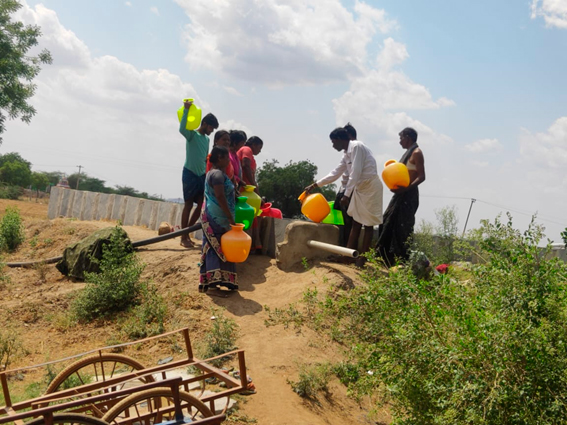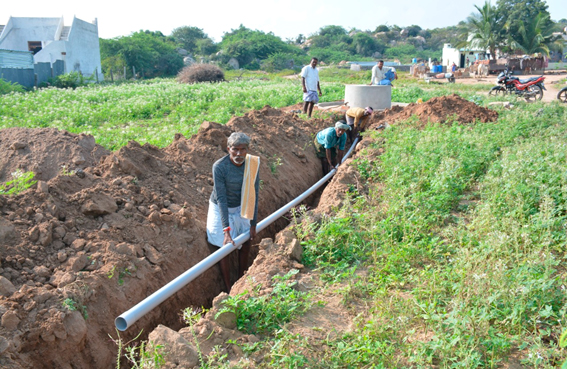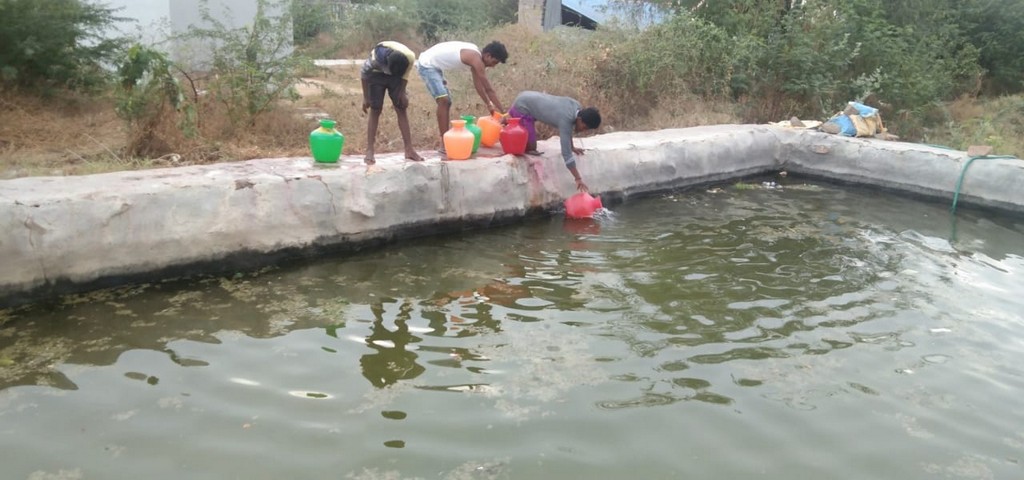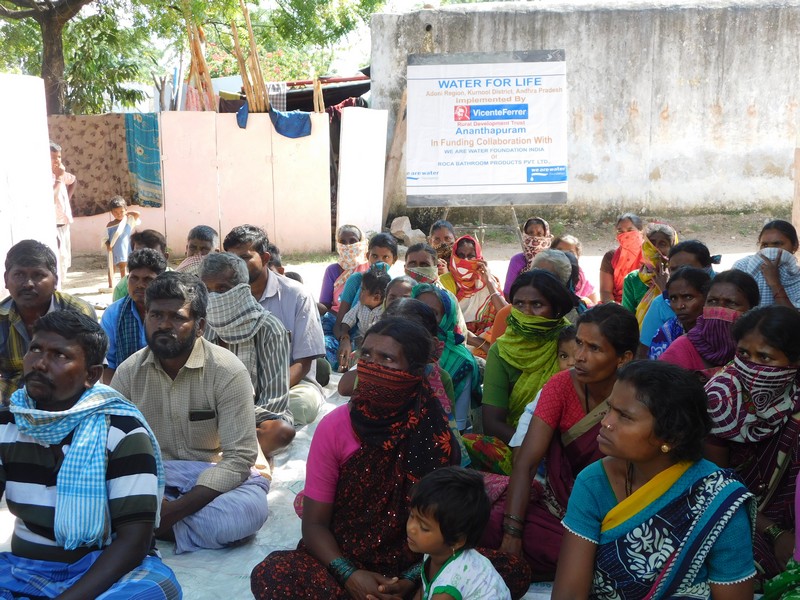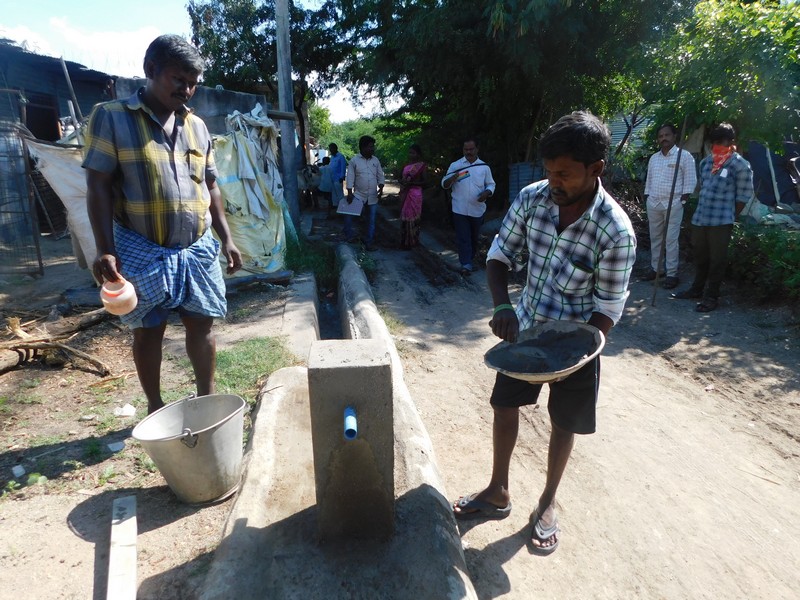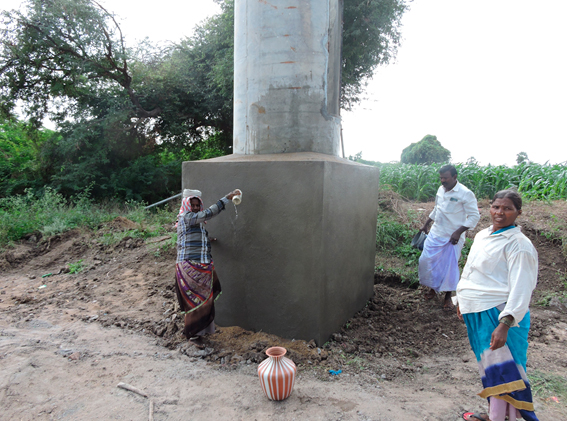Agraharam, Kambaladinne, Putakalamarri and Angaskal villages of Adoni Division in Kurnool District of Andhra Pradesh, India
In collaboration with

June 2021 – March 2022
We improve the quality of life through access to drinking water for 2,816 families who have to walk long distances to get water.
Objectives
Improving the quality of life of rural communities by providing access to water for drinking and other domestic purposes.
Specific objectives:
- Enhancement of knowledge on the importance of water and water borne diseases
- Improving the access to water within reachable distance.
- Improving the health conditions of rural population.
- Decreasing the workload of the people, especially women.
Beneficiaries
15,032 direct
3,554 children under 15 and 5,781 women
1,000 indirect
500 children under the age of 15 and 250 women.
The labour and the material suppliers who are getting employment by this project and their family members.
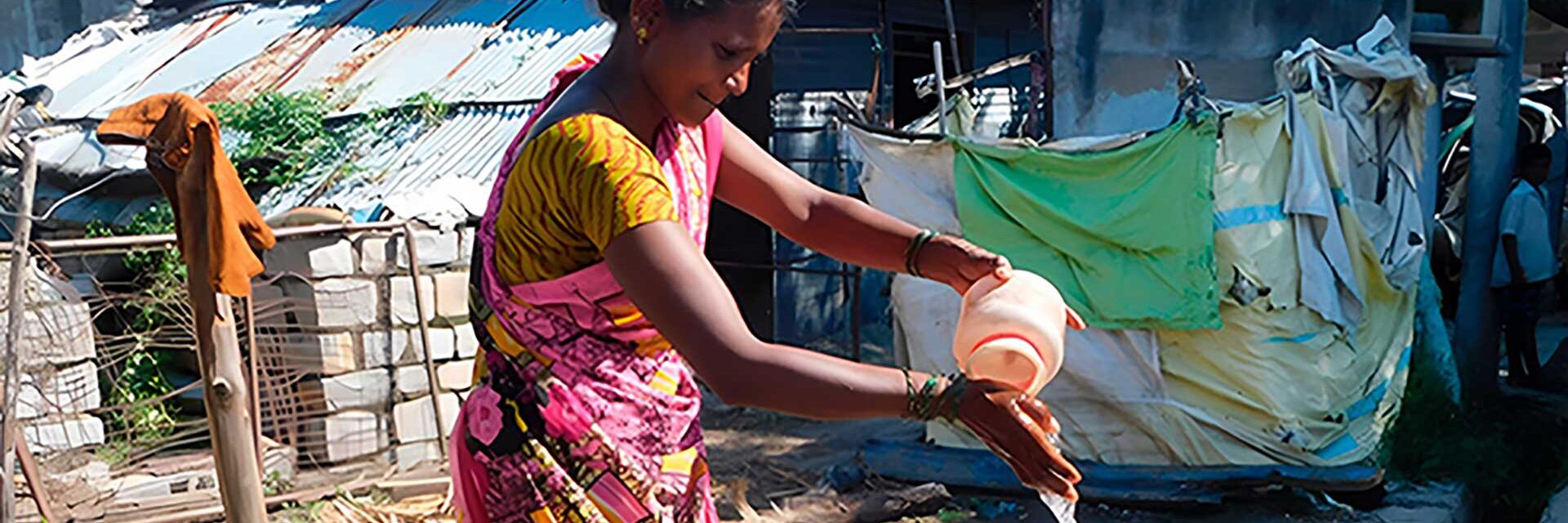
On the ground
Health and workload problems due to poor supply.
The rural population of Agraharam, Kambaladinne, Putakalamarri and Angaskal have been suffering as there is no access for continuous water supply. There are 2,816 families living in these villages. The current systems are under malfunctioning condition and, as a result, the people have to go for a long distance to get the water from a contaminated sources, leading to tremendous increase in their workload. The lack of availability of sufficient water is causing health problems for them as they barely bathe.
In detail
In order to supply the water on continuous and sustainable basis, the bore wells have been drilled and water has been supplied through storage tanks erected in strategic locations in the village to enable the people to get at a very reachable distance. Required pipelines have been laid from the source of water to the storage tanks.
No other local partner participated in this project. RDT – Vicente Ferrer Foundation directly has executed this project by involving effectively the beneficiaries and project implementation committees. At the same time, the Civil Contractors have also not been considered as the cost of the project would have increased. The Habitat Sector of RDT – Vicente Ferrer Foundation has implemented the project through its Civil Engineers and Community Organizers under the supervision of Regional Engineer and Assistant Technical Director. The Area Team Leader took the responsibility to implement the project under the administration of the Director – Habitat and the Regional Director.
Sustainability perspectives
This project contributes to improve the accessibility of water in proposed four villages. The people has continuous water supply for their drinking and other domestic needs. Moreover these water supply projects improve the health conditions of the communities and addresses the most important problem of the humans.
The proposed activities have been implemented by Habitat Sector of the organization with the help of its Engineering Team. The Community Organizers working at grassroot level will look after the social aspects of the projects. Any Civil Contractors have not been considered in order to achieve the better quality as well to make the project more cost effective. The utmost importance has been given for quality of construction. The Central Procurement Department has supplied the quality materials like cement, steel, paint, etc., and the local materials like stone, sand, bricks and storage tanks have been procured by involving the local committees and the beneficiaries.
In addition, meetings and workshops have conducted to enhance the knowledge among the beneficiaries, committee members and village panchayat members. Once the project was completed, the water supply system was handed over to the village panchayats for the future maintenance and sustainability. The village panchayat is maintaining it with the help of Rural Water Supply and Sanitation Department of Government.
Apart, RDT – Vicente Ferrer Foundation works in these villages on long term basis. The staff at grassroot level takes care of the follow up and provide handholding support during and after completion of the project to ensure sustainability.


